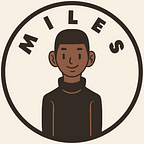Review of A Very, Very Bad Thing
A discussion on how perspective can influence how we see right and wrong.
Going into this book I had one expectation: that a very, very bad thing would happen. Now that I’m finished with this book, I can confidently say something very, very bad happened, but… not in the way I thought it would.
A Very, Very Bad Thing by Jeffery Self is a rare gem in a growing genre of coming-of-age/romance LGBT fictional literature in that it sets itself apart with a greater discussion of right and wrong and the grey area in between.
I enjoyed this book from the first to the last page. The characters, scenes, and the overall plot kept me engaged for the duration of the read. However, what I loved the most were the characters. When Jeffery Self wanted to strike a happy, sad, or humorous chord, he did so in such a fashion that I really felt connected to the characters and the situations they were in.
Now, one thing I did like and threw me off was definitely the small littering of over-explanations about how a character feels or their situation. Though, I will speak more on that later as I first want to dive deeper into what I enjoyed.
Characters
The main, and most important character is Marley, “another snarky gay kid” from Winston-Salem, North Carolina. I like this character for two reasons. He really does live up to that “snarky” description he self-titles himself. It’s quite humorous to read his descriptions of the people and environments around him. From his parents to his best friend, and eventual love interest, he does not hold back. Now for the second reason; I admired his morals. They weren’t necessarily good or bad, they were sort of in the middle. This led to some interesting scenes and conversations where I truly was on the edge of my seat wondering what he would do.
The second most important character is Christopher. He’s an all-around flirt that helps to contrast Marley’s quite often defeatist outlook on life. Right from his introduction, he comes off as bold and confident, oftentimes taking the spotlight in dialogue. Though, what is great about his character is the backstory. To give a short summary, it’s depressing— like really depressing. The way Jeffery Self writes these brief mentions of his background really shines a light on his story-telling talent. What is important to note is that these scenes do not only serve to jerk a tear, they really help to build up Christopher as a character.
While not as important, but still worth a mention are Marley’s parents, and his best friend: Audrey. Another thing I liked about this book was the side characters. Naturally, they take up less space on the pages, but not in the story. Audrey and Marley’s parents add their own elements to the story which helps to break up the plot and offer a sort of “rest-zone.” However, their stories still intertwine in a way that was pleasant to read, and exciting to unravel.
Plot and Storytelling
As I’ve mentioned before and I’ll say it again, the plot and storytelling in this book are unlike anything else I’ve read. In the genre of coming-of-age/romance LGBT fictional literature, it’s not common to find a plot like this, let alone a entire book that follows and discusses it.
Without spoiling much, the plot is one of romance. Character A falls in love with Character B and they live happily ever after. Except, that is not what happens at all. As the title suggests, a very, very bad thing happens. This event spirals the book into a whole-nother direction. Now, usually, when that is done it can be pretty jarring and can lead to disinterest. But rest assured, that is not the case, in fact, it’s quite the opposite.
After this event, the book takes off, as the “very, very bad thing” can be interpreted in two ways. This is where the discussion of right and wrong come into play and the grey in between. Watching the characters and plot balance between right and wrong not only kept me interested but opened a greater internal discussion about perspective, and how that can shape our decisions.
Over-Explanations
As aforementioned, the book had one thing that kind of threw me off and that is the amount of over-explanation in the story. This issue stems from the main character, Marley, and his character's voice. By nature, he is pessimistic and tends to pick apart things. Due to this, some of his feeling and situations will be described in entire paragraphs when they really could be summed up in one or two sentences. This also happens when Marley recalls something from the past and narrates it in such detail that it becomes a bit repetitive.
Though, this wasn’t that major of a turn-off as it doesn’t happen frequently enough to pull me out of the story.
In Summary
This book was an amazing read. From beginning to end, I was engaged in the plot and felt connected to the characters of Marley and Christopher. The big “twist” is also a welcome one as it shoots the story in a whole new direction that is not only exciting but more importantly, thought-provoking. I can’t recommend this book enough if you’re into coming-of-age/romance LGBT stories. Unlike the name of this book, reading this book is a very, very good thing. I would give this book a strong 8/10.
Thank you for reading,
— Miles James
